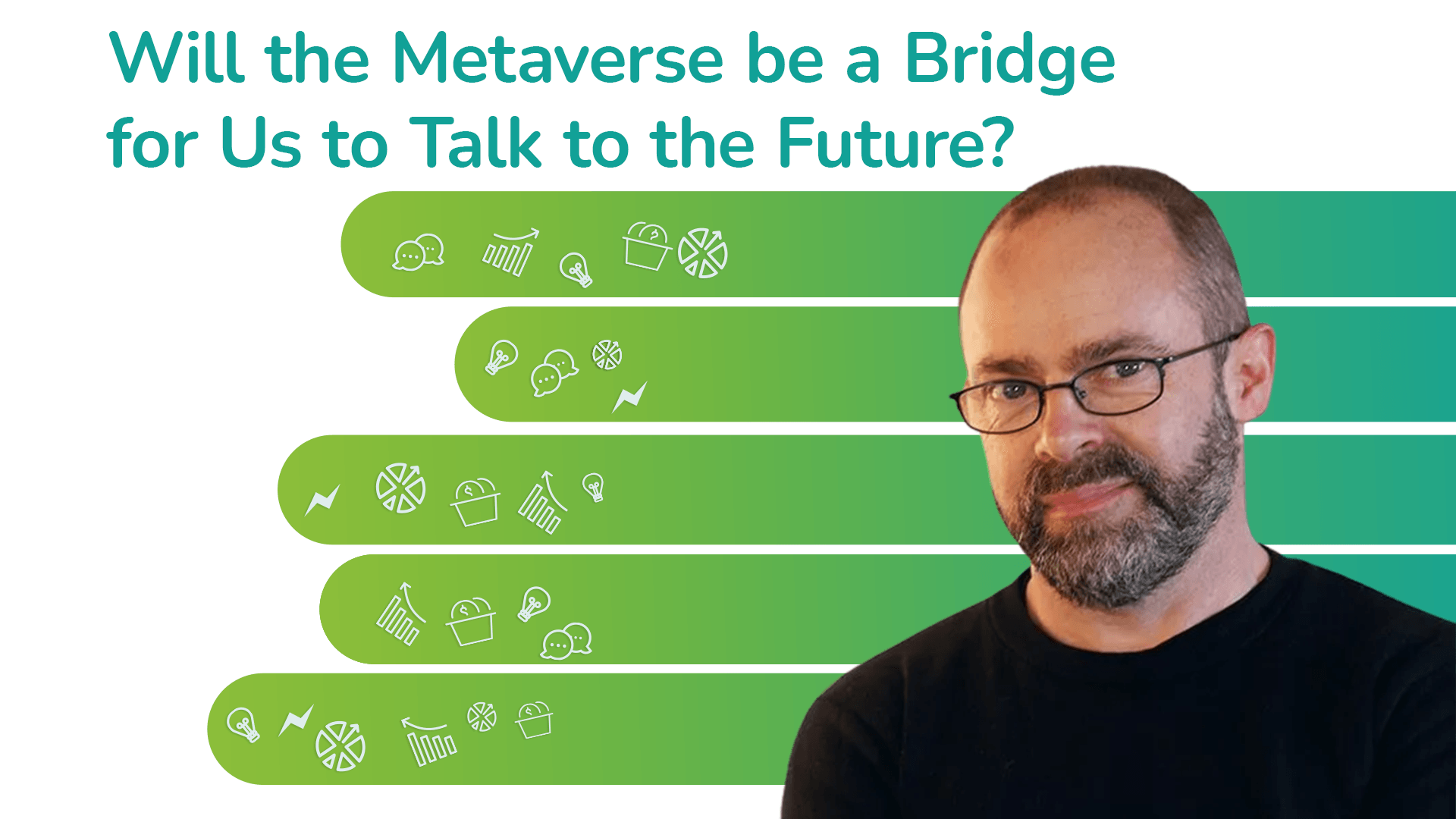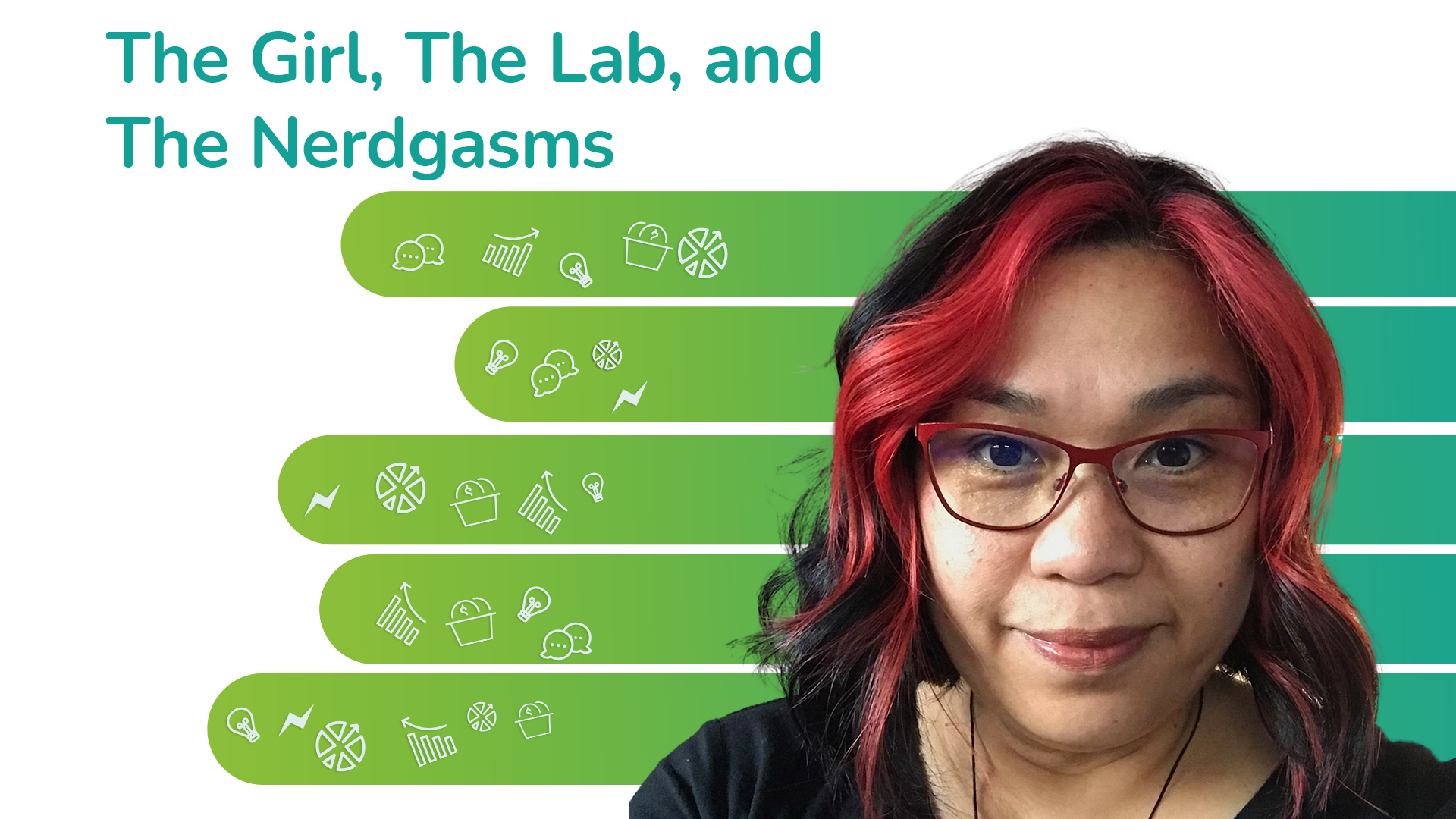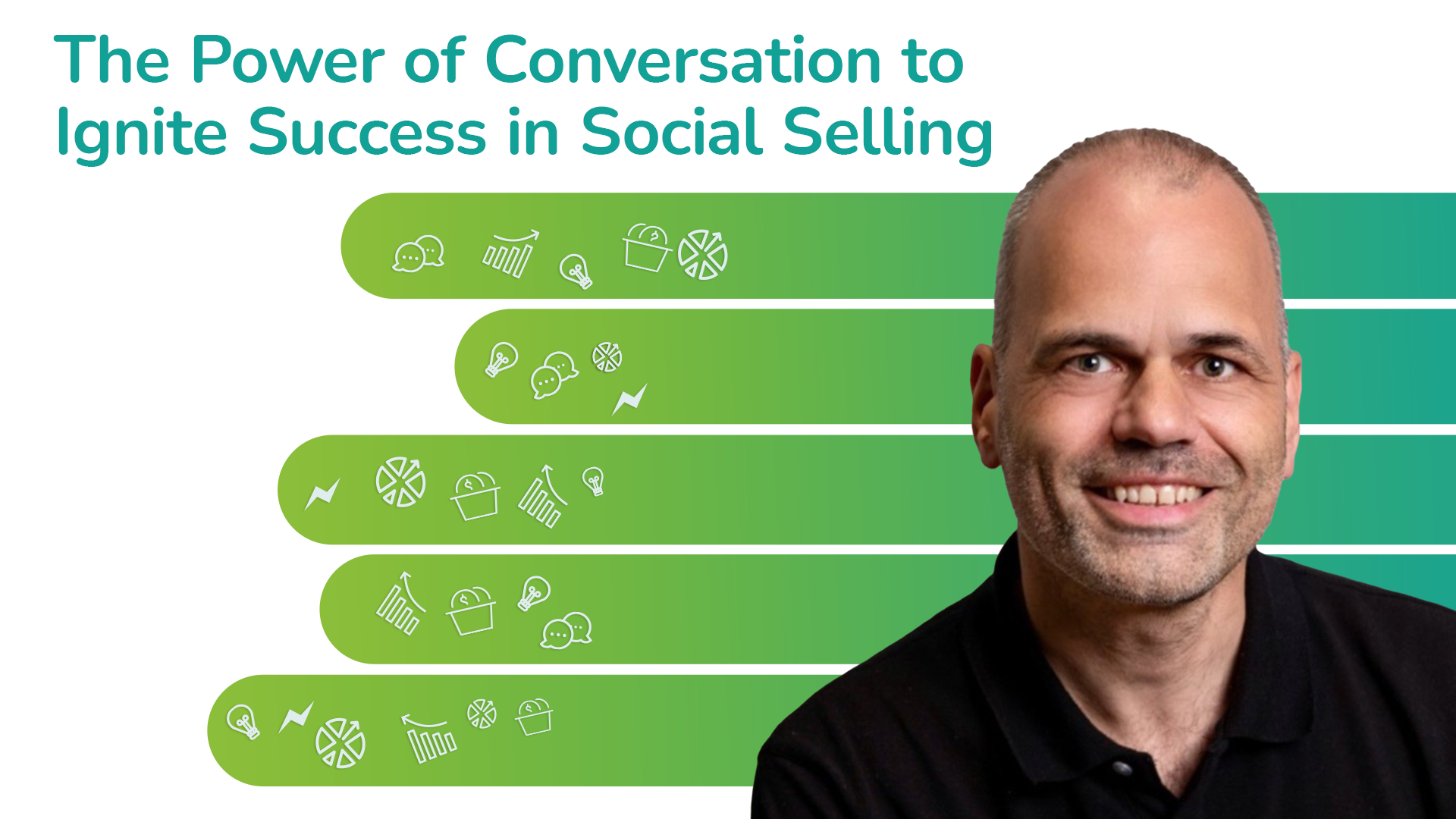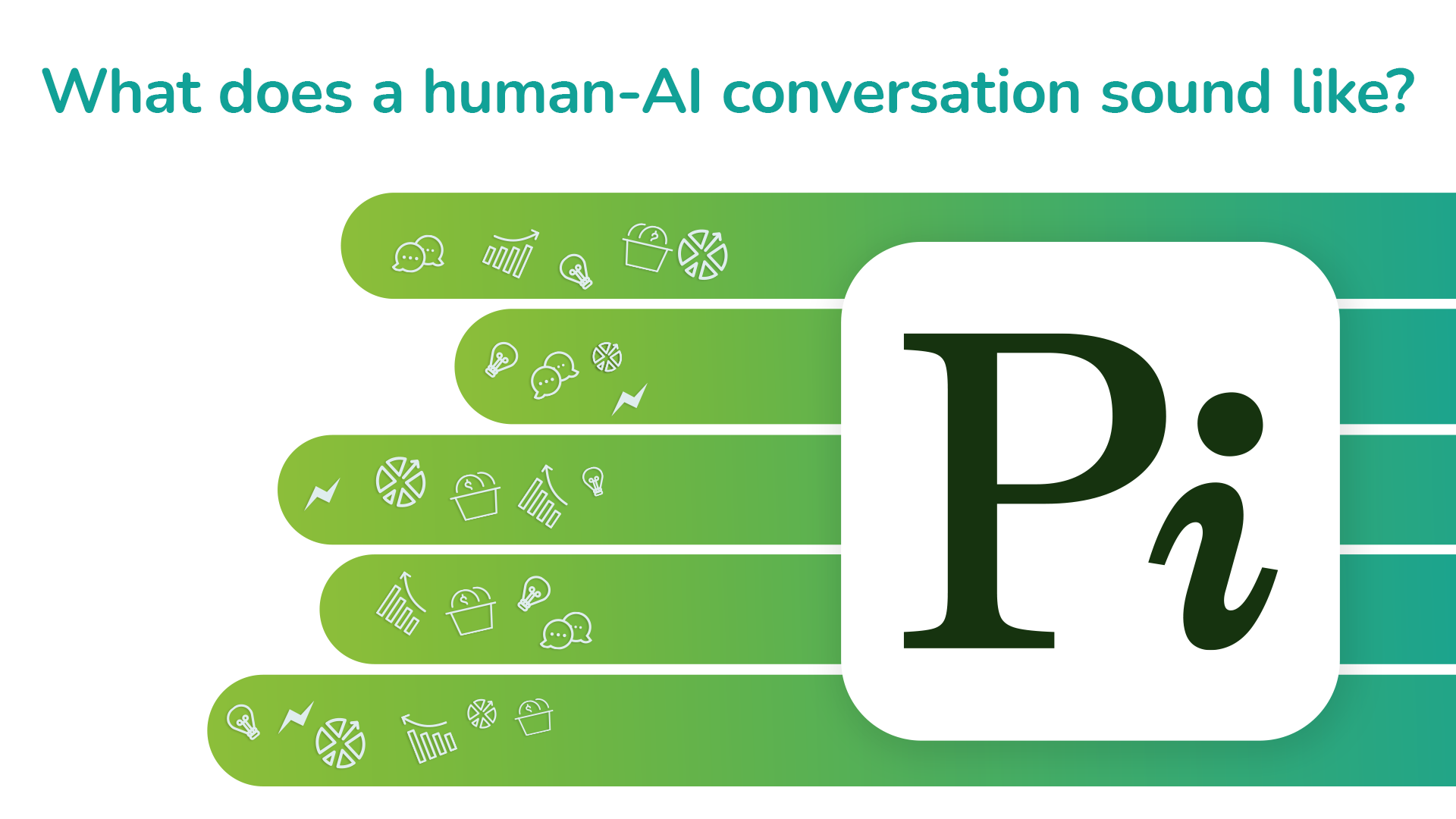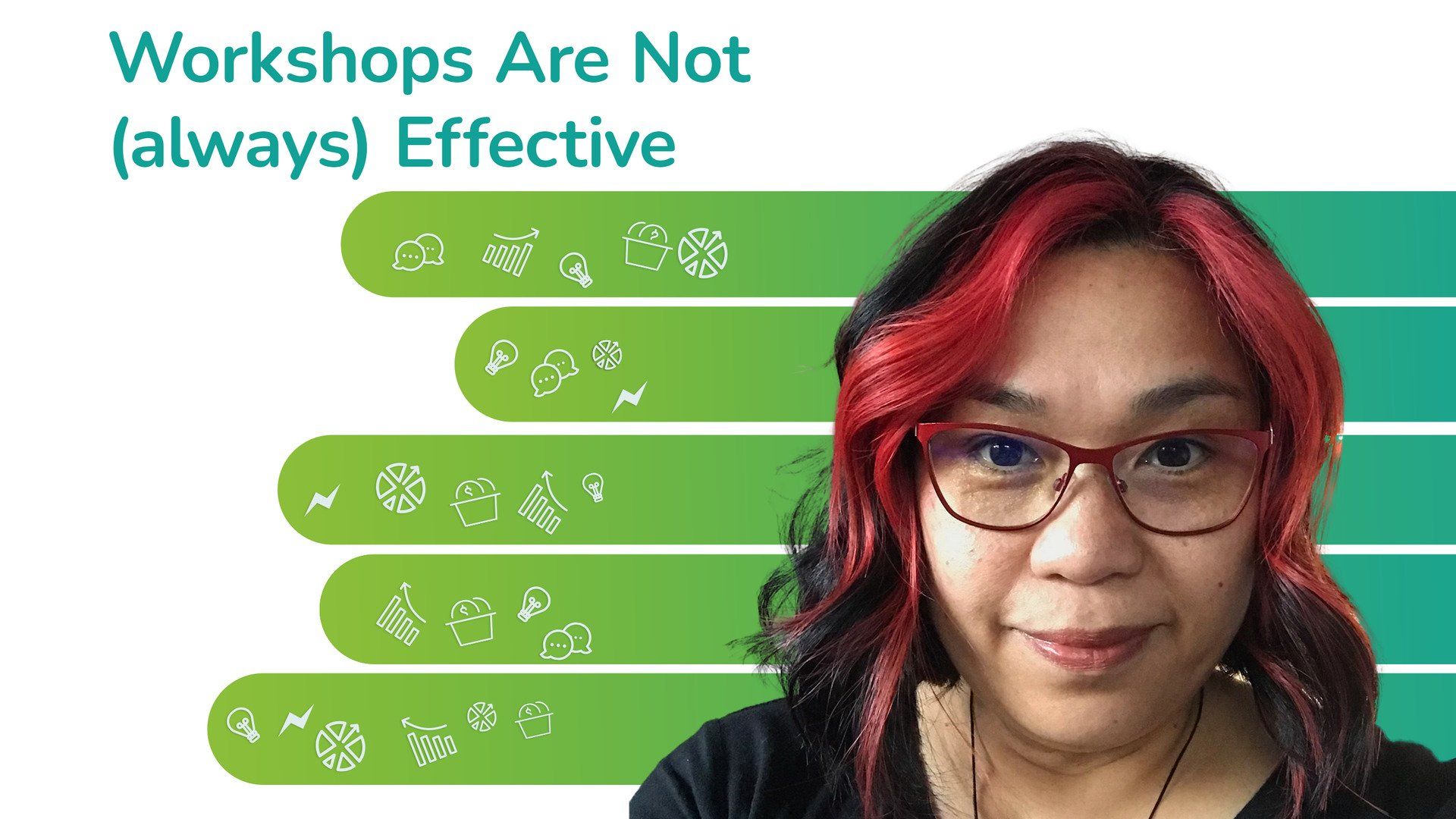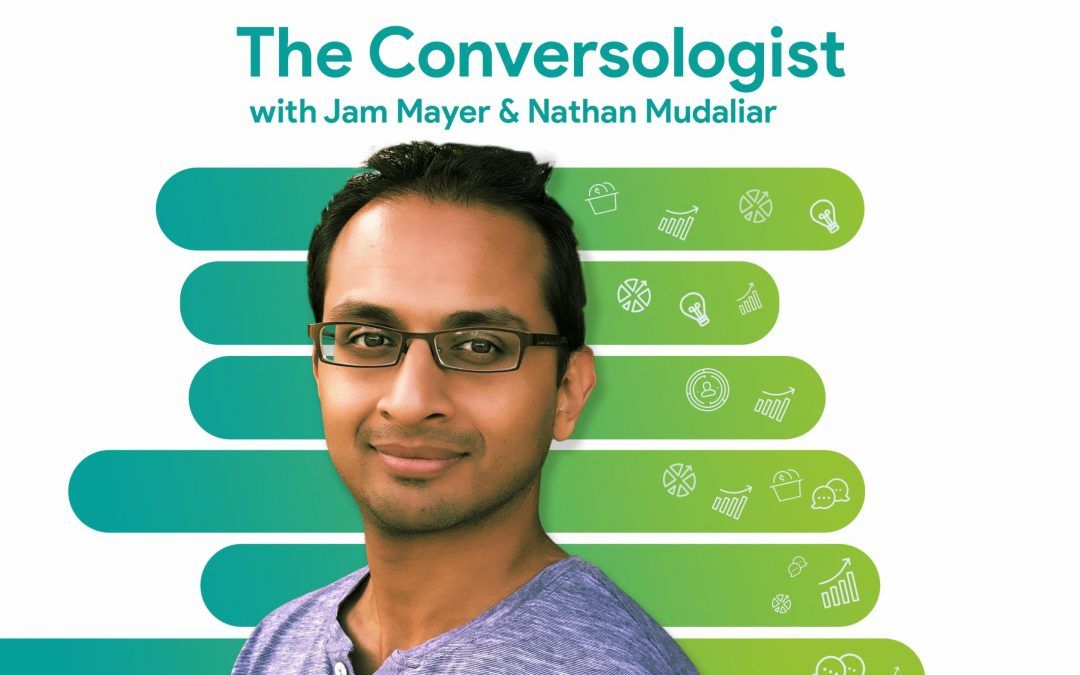
Season 3 Episode 30 | 28 minutes 45 seconds
In this thought provoking episode, we take a deep dive into the impact of AI on the human element and the essential skills needed in the age of AI. We explore the evolving relationship between humans and technology, emphasizing the need to complement rather than compete with technological advancements.
My guest is Peachy Pacquing, managing director of Hyper Island.
Host & Guest
Jam Mayer
Resources
Episode Conversation
Topics that were discussed:
Episode Transcript
Jam Mayer
With technology rapidly evolving, it's easy to get caught up in the mechanics or the tech side and forget that a critical aspect often overshadowed in the discourse about AI is the human element and impact on its future. Welcome to the Conversologist show where we dive into the art and science of conversations in the digital space.
We know that technology can be a powerful enabler, but communication and emotional connections still need to be at the core. I'm your host, Jam Mayer, and I invite you to converse with us. Today, our guest is Peachy Pacquing, managing director of Hyper Island, a business school founded in Sweden where they focus on transformative learning. I love this school.
She brings a unique perspective on this topic, blending her rich experience in human transformation and digital innovation. Join us as we unravel the essential human skills needed in the age of AI and how we can complement rather than compete with technological advancements.
Welcome, Peachy. Thank you, thank you so much for joining us today.
Peachy Pacquing
Thank you for having me, Jam.
Jam Mayer
Peachy and I are good friends. She is actually while we're recording this, just for our listeners as well, she is here in New Zealand. But just for a few weeks, maybe we can start off because we've had this conversation. You've mentioned or emphasised the need to focus on the human side of AI because everyone is just going, we need engineers, tech, programming, etcetera. So I'd love you to share to our listeners your insights on the impact of AI on employment or even, well, human skills.
Impact of AI on Human Skills
Peachy Pacquing
Well, yes. This is something that's very close to my heart, and it comes from a place of being a parent. And the first, I guess, the trigger that made me go on this journey of trying to figure out what the value of being human is, is because as we see how quickly technology evolves. Have we prepared sufficiently for the time when humans will be working alongside technology?
If you are into future studies or even science fiction, you see a trajectory. And this is humans use technology as tools, but eventually as as technology becomes more sophisticated, you would be working alongside technology, and I think we're in the in the midst of that right now where we use a lot of technology to augment our power decision making.
But there is a further trajectory where technology become agents. They become not just tools we use, but they have the ability to make decisions. So that was the future I saw as I was trying to figure out a very simple question. What school will I put my children in? And and what course should they be taking so they live fruitful lives and thrive in well into the future? And the statistic that's that sort of floored me was 80% of the jobs are yet to be invented. So that's a quandary, particularly in my role as curriculum designer at the university back in the Philippines.
I said, okay, so how can you design a curriculum when you don't know what the jobs of the future will be yet? So this started me in earnest, and tried to figure out, so what's this human, human machine dynamic that's going to evolve? I took my master's. I dug into the subject matter. I studied the jobs that will be eliminated and the jobs that will be created. I was trying to figure it out for all those learners who trusted us with their transformation. And I guess last year was very revealing. I would dare say this. And it's very early and even crudest manifestation, AI has entered the scene, the landscape big time.
And I stand by my adjective of early, crude, and not as sophisticated because it's going to evolve so much more into the future. I always say most of the people are judging the AI that they see now and its applications. The way you used to judge Dial up Internet. You say, oh, this Internet is so slow. This Internet is so so annoying. I always get cut off. I have to redial all this. The sound from this modem is annoying.
Future of Employment and Essential Human Skills
You know? I think that we're in that stage if you take a look at AI and and how are we appreciating it. It will get far more sophisticated. And maybe it will become far more embedded in our lives, the way our phones are embedded in our lives. And so what's the role of humans in a very tech centric world? Where what is bright and shiny as far as technology's concerned is all that is praised. What's the role of human beings and human development?
And that's what I'm dedicating the rest of my life to is trying to figure out what's the value of being human, because I feel we are overlooking the fact that there will be a very disruptive period In this evolution of artificial intelligence where we have to respond quickly when we start seeing artificial intelligence being Integrated more and more.
Now how are we supposed to provide value when we were taught in school, the value of knowledge, the value of intelligence is to be able to provide the right answers. But when AI comes into the picture and AI has all the answers, I'm gonna and and please don't get me wrong. I'm not saying AI is is perfect by any means. I'm just saying AI has a larger set of information to draw from and perhaps even larger than 1 human being's database.
So, therefore, how can you answer a machine that will probably have far more information modelled into it than a human being. So we we discussed this over lunch and, yeah, over coffee. And and and we said, we believe both of us believe that the value of being human when machines become that intelligent is not in giving the right answers, but asking sharper, better, more insightful, more incisive questions.
Jam Mayer
And on that note, I'm just gonna step back a little bit, and and that is interesting. And to of those who are listening or watching this video, you know, I want to reiterate that is it's all about not about finding the answers. Right, but it's all about asking the right questions. Just as a sidebar, I mean, that is what is happening with Google search engines right now because we're so used to, yeah, searching and finding the answers for ourselves and grabbing that knowledge, etcetera, but it's really, really changing that at least in my industry. So good good point.
You mentioned or I think part of your presentation that you've done, I think, in the Philippines, if I'm not this is probably a presentation you've done for other countries as well, is about technology outpacing humans. So I guess the question here is there's a lot of fear going around. Right? A lot of you is like, oh my gosh. You know? Thank goodness AI isn't perfect yet. Oh, no. How long how long am I going to have this job? Do I start learning now? But I know I have a lot of questions, but any thoughts or approach on those who are fearful or afraid of losing their jobs because technology is indeed going to outpace humans. I think that's what Gerd Leonard has mentioned. Yeah. Any thoughts on that?
Peachy Pacquing
For context, Gerd Leonard actually studied that projection of how much investment is being placed in technology versus how much investment is being placed in human development. It's not rocket science, particularly when you survey the landscape of the tech industry.
Technology is really developing at a much faster and dizzying rate than human beings. And sometimes I wonder if the narrative is that's what capitalism brings about, it's who's going to give you the highest profit with the lowest cost right? And we know carbon based machines, meaning human beings, are are far more expensive to maintain and automation technologies that are evolving. But that is the reality. And I'd like to caution those who say, oh, it's just a matter of upskilling people. Because in my research, even if you have the best laid out plans for upskilling, it really is about the learner.
The center of gravity is not with the learner, learning designer, or perhaps the corporation. The center of gravity for the application, the retention application of learning is with the learner, and I'm talking about intrinsic motivation. So if the person is not intrinsically motivated, you can throw a lot of incentives, a lot of these learning programs to no use. Right? And that's why I say I caution people thinking that an upskilling program will solve it. No. It's much more complex. It's a systemic problem, A system challenge because you have to get people to want to upskill.
Now for those who are fearful, that's already an intrinsic motivation. I don't want to be obsolete. I wouldn't see fear by itself as a negative thing if fear pushes you to become better. Right? If fearing the loss of livelihood, the loss of your lifestyle to be compelling enough to say I want to become a better human. I want to become a better professional. Then I would tell those people, how are you going to invest in yourself? And there are many, many, many what we call hard skill courses, but there are very, very, very few soft skill or meta skills courses.
Essential Human Skills for the AI Age
My point of view on hard skill versus soft skills is hard skills, content, that's is ubiquitous. It will always be there. You don't even need to spend. You you you just go on a LinkedIn learning course. But If it's not designed properly to engage the meta skills, which is your skills that allow you to learn how to learn. When this version becomes out of date, then you struggle again to learn the new version of technology. And that's what we see often. The resilience, the ability to learn new things, the ability to learn things that we don't know we need to learn is far more important in keeping yourselves valuable and for you to thrive in the workplace than to know very specific skills that are time bound.
Jam Mayer
Got it. So it's is it, and correct me if I'm wrong here, it's more of really adapting to the fast pace, the changes based on technology advancements.
Peachy Pacquing
Yes.
Jam Mayer
Yep. Okay. Got it.
Peachy Pacquing
In our younger years, I think IQ was such a big thing. And then eventually, they said, oh, IQ is not as important as EQ. Well, from where we sit, we see that IQ is important, EQ is important, but now equally important and maybe a bit more important is AQ, which is Adaptability Quotient. You have to be able to adapt to a very, very fast changing world. And that sounds so cliche right now because everybody says that, but that's what we're facing.
Jam Mayer
And I learned something today, AQ.
Peachy Pacquing
Yes. And, and I guess, when you look back at schools, everything was finite. Right. I think we weren't really trained to dream, to imagine. We were taught, find the answer, find the answer when maybe we should be asking our children and not just our children, even the even people in the workforce to start asking better questions.
Jam Mayer
That's really good. Okay. So in terms of skills. Right? Because to be adaptable or having a higher AQ, what do you think are some skills or essential skills that humans should start learning other than the hard skills, of course?
Peachy Pacquing
It's funny because I'm doing the I I'm in the thick of the research of researching meta skills right now, the skills that allow us to learn. And it's interesting that you would have I uncovered feeling. We have to learn how to feel again. And you might say that's a feeling, seeing, dreaming, making, and learning. I think the term empathy sort of bled into social consciousness about, I think, 10 years ago, empathy, vulnerability. And these are skills that are not necessarily hard skills, but learning how to be vulnerable is learning to say, I'm sorry. I don't know, but I can learn it. That's humility.
So all of these things will start to become really, really important to see. And when you see, it's not just seeing five feet in front of you, but see the world in layers. See the world in form of a system. I'm looking out my window right now. I'm looking at the trees. I'm looking at the cars. What's the relationship of the cars and the trees and the sky and the road. So see the world in layers.
Don't look superficially. Go deep, we always say, and make connections and to dream. I'm not so sure where I found that term a failure of imagination. I think the world that we have right now for all its ills and challenges is because the people who built what we have right now failed to imagine what would happen, what alternative futures. So to dream about alternative futures, what's the future we prefer and how can we build that? And then we make things. Making things means getting your hands dirty. Don't over intellectualise. Say, I don't know what will happen if I press this button, then press the button.
I don't know what will happen if I put in 4 ads instead of 7 ads, then put in 4 ads and put in 7 ads. Just make things and constantly learn. I don't think we will ever stop learning. By now, lifelong learning might be some overused line, but I think that's the reality right now. There's no finish line as far as learning's concerned.
Jam Mayer
So what I'm hearing here is that people should start learning how to see the bigger picture? Or if not the bigger picture, at least knowing how to connect the dots.
Peachy Pacquing
Both. You have to see the big picture, which we call zoom out. Zoom out and see what are the drivers in society. What will happen when the population ages? How will that affect the economy of the local businesses? So that systems you're looking at the systems. You're connecting the dots, but also go deeper. Go deeper into the person who is ageing and try to understand what are their motivations, what are the things that make you feel alive, and and how can we serve you better? You know, go broad and go deep. This is the same skill that we have to develop. We have to be able to see beyond the obvious and make connections. As she said, connect the dots, try to connect them in, in ways that we haven't connected them before.
And that's where innovation lies and also have a deep curiosity for how the world is working. How is it working? Well, we know that there's a war in Ukraine. It affected the supply chain. How is that going to affect, like, say a PR agency in New Zealand. How are those things connected right now? So yes. So think broadly, look broadly, and look deeply.
Jam Mayer
Because not everyone can see the bigger picture. Can you provide sort of a a simple example what the difference is between these skills to just show has bigger picture thinking can be beneficial. Alright.
Peachy Pacquing
Let's use the term systems thinking. Okay. That's probably bigger picture thinking. Yeah. There are two ways to think. There's a reductive way and a systemic way. Our reductive way of analysing is to bring a huge problem to its smallest component. The way to solve this problem is if we can solve the smallest component, then we can solve the bigger problem.
It doesn't work that way because most of the world's problems now are extremely complex. So it's no longer simple. In the past, maybe it's what it used to be. If I increase my yield, I will increase my profit. So it's linear. The world is linear. The world used to be linear, and we liken that to a cannonball. You shoot the cannonball, you know where the cannonball will land. But the thing is the targets are moving.
Let me give you an example. I was asked to run a workshop for a PR/Events company because they're trying to map their future, and they wanted the workshop called “Strategise like a futurist”. The very thesis of strategising like like a futurist is for you to to acknowledge that there is no singular future. And what you think is going to happen in the future may not necessarily happen.
So why are you putting plans in place for a singular future? There may be multiple futures and you should be adaptive or agile enough to to switch depending on what future unfolds. So that's one way of looking at systems because you're being dialled into politics, economics, the social aspect, the technological aspect. So that's the broad view. Just looking at it and seeing what what's driving the world? What are the factors that are driving disruptions in the world?
Now that's one skill that we may have touched when we were younger and we may have touched while we were in university, but it's not enough. We have to really live that way and try to see the consequences of our actions. It's interesting because as parents, you might say, well, your action has consequences. Right? So because there's a bigger context in which the child operates in. So that's one. That's one very specific example is now planning or what well, by the way, planning and strategy are 2 different things, and you can't mix up the 2. So when you plan, most of the time, we make so many assumptions and we plan in a linear fashion.
We will Increase our business by doing this, by doing this, by doing that. But sometimes nothing went according to plan. So that's systems thinking and also recognizing what I call seeing through different lenses. When we are looking at challenges or phenomena, we have to look through several lenses. We have to look at the through the ethical lens, not just 1 lens, not just the financial lens, not just the economic lens. So there are other lenses because one thing we try to avoid would be what we call unintended consequences. I'll give you an example.
There is this nonprofit, a very popular nonprofit that I've seen some of the the products of that nonprofit in New Zealand. They're very, very well meaning. You buy one of these, someone somewhere gets one of these as well. But with all the best intentions, the unintended consequence of that business model is you're giving away this particular product, it's no longer being manufactured in that country and therefore an industry was destroyed. So, of course, we didn't think of that. We just wanted to do good. Right? We just wanted to give away 1 product. If someone buys 1 product, we give away 1 product, but we didn't think about that.
So now that we know that we're all interconnected, global warming is everybody's concern. So the 2 things that We try to really drive home at HyperIsland with every learner is what we call transdisciplinary thinking. Means It's not different disciplines coming together, but a single individual being able to appreciate and converse in many disciplines. I can converse in tech as I can converse in finance. I can converse in in creatives, etcetera, etcetera. So we try to develop transdisciplinary view of the world as well as a systems view of the world.
Complementing AI with Human Skills
Jam Mayer
That's fantastic. So meta skills, for sure, AQ. There's a lot of gems in there. I'm just trying to summarise everything as well. Those are the 2 big things that I took away from that and definitely taking down notes here. So let's move on to complementing. I know we discussed this as well in our lunch or one of our cafe catch ups. But it's I think it's about AI and humans.
Maybe it is starting now, but it is definitely the future we're in instead of fighting technology and trying to destroy them. So it's more of embracing it and not to compete with it because as we know, as you mentioned, right, technology will definitely outpace humans because a lot of data, etcetera, in speed. So it's more of I don't wanna say the cliche thing. If you can't be them, join them. So it's more of
Peachy Pacquing
No. You don't. And you don't join them. We don't join them. We we actually we actually complement them.
Jam Mayer
Correct.
Peachy Pacquing
If that's what machines are good at, What are humans good at? We're good at collaboration. We're good at imagination. We're good at being critical about things, sometimes overly critical, at least employing critical thought. I don't think it's either or. The time will come where actually it's already here. We were just going to watch a movie. And just to decide what movie to watch, you have recommendation engines working for you. Right? Because based on your viewing history, so it's part of it is already there. It's ubiquitous without us knowing it, helping us make decisions. But our value in human machine collaborations is challenging what machines spit out is to say it's logical, but my lived experience tells me what's logical may not necessarily be the right answer.
Right? Because you have lived you have lived a full life, and that is my encouragement to anyone who's listening or maybe watching. Live life to the fullest. Experience as much as you can. Read books you might you think you might like. Watch anime if you think it's just for children. Go beyond the boundaries that you set for yourselves because that's what's going to give you a fuller lived experience. And that's what's going to make you confident to challenge what the machines produce and say, “that doesn't sound right, but what if we could do this instead?”
We need people to be doing that, to be challenging the results. When we thought marketing was all about these martech, adtech technologies, and then we see the dark side, and apparently, nobody was questioning it in the back stories about where it went wrong because nobody challenged it.
It says, oh, finally, a fantastic technology that makes life so much easier and nobody challenged it. And nobody said, how do I know that I really have these many spots in these many web pages, etcetera? A report is just a report. It's just a report. So that's where the ability to challenge, I think, critically, truly, truly matters.
Jam Mayer
This just reminds me of an article of the thread, but this is more content. So what's happening is, obviously, if it's connected to the Internet and then if we are creating art of AI content, and then it's gonna learn from AI content and so on and so forth. And, apparently, this article said it will reach a point wherein if it's learning from its own AI content, then it's going to fail. Because to your point, there is no human element in it. There's no rich experience. There's no challenge because it's just accepting that data and then just literally regurgitate, if that's the right word.
Peachy Pacquing
Yeah. I mean, just pick any human experience. Let's say let's say human relationships. This is very dataka, science fiction. If you could generate the data from someone you wanna go out with and and it says, oh, this guy studied here, customer rich family, whatever, whatever. It's only the lived experience that makes you realise it doesn't matter sometimes. What really matters is just someone to make you laugh. I don't think that will appear if you asked for a report or a profile, But it takes experience for you to know that they look good on paper.
They look good on our resume, but that's not going to guarantee that you will live happily ever after. A lot of it is about what it means to be human. So I guess that's the quintessential cost question. Is what is the value of being human? And I think schools should all focus, fiercely focus, and making sure we're very clear about what the value of being human is.
Closing
Jam Mayer
I totally, totally agree. If there is one thing you'd like our listeners to take away from this topic or from this conversation, I should say, what would that be?
Peachy Pacquing
I want to say there is no finish line, and that's maybe counterintuitive to how we were brought up and said, well, one day at 65, there is your finish line. Right? You will retire. What's going to happen is you will have many retirements. You will retire from 1 industry, move to another, keep investing in yourselves.
What is going to make you thrive in the future? And it's really investing your humanness. How you provide, how you deliver value, human value to the world. I go back to saying there is no finish line and wouldn't we want to constantly be giving delivering value as long as we're living.
Jam Mayer
A 100%. Yep. It's all about investing ourselves. Well, thank you very much, Peachy, for this, I would say, thought provoking. There's still a lot of questions and a lot of, well, answers, hopefully not given by AI. But for us to answer. Today's discussion highlights, like, a pivotal shift, so to speak in our relationship with technology. Right? So it's not about outpacing AI, but synergizing with it. So as we all continue to navigate this evolving landscape.
Let's remember the power of human imagination, the power of humans and collaboration. So thanks again.
Peachy Pacquing
My pleasure.
Jam Mayer
Love it. So stay tuned for more episodes, everyone, where we explore the intersection of technology and human conversation here at the Conversologist show. Hit that follow button or bell, whichever you'd like to do. Don't be shy to leave a message on Spotify, by the way, or on social media. Know someone who'd love this and listen into other episodes, please go ahead and share. I would love you for it. Until next time. Keep the conversation going.

